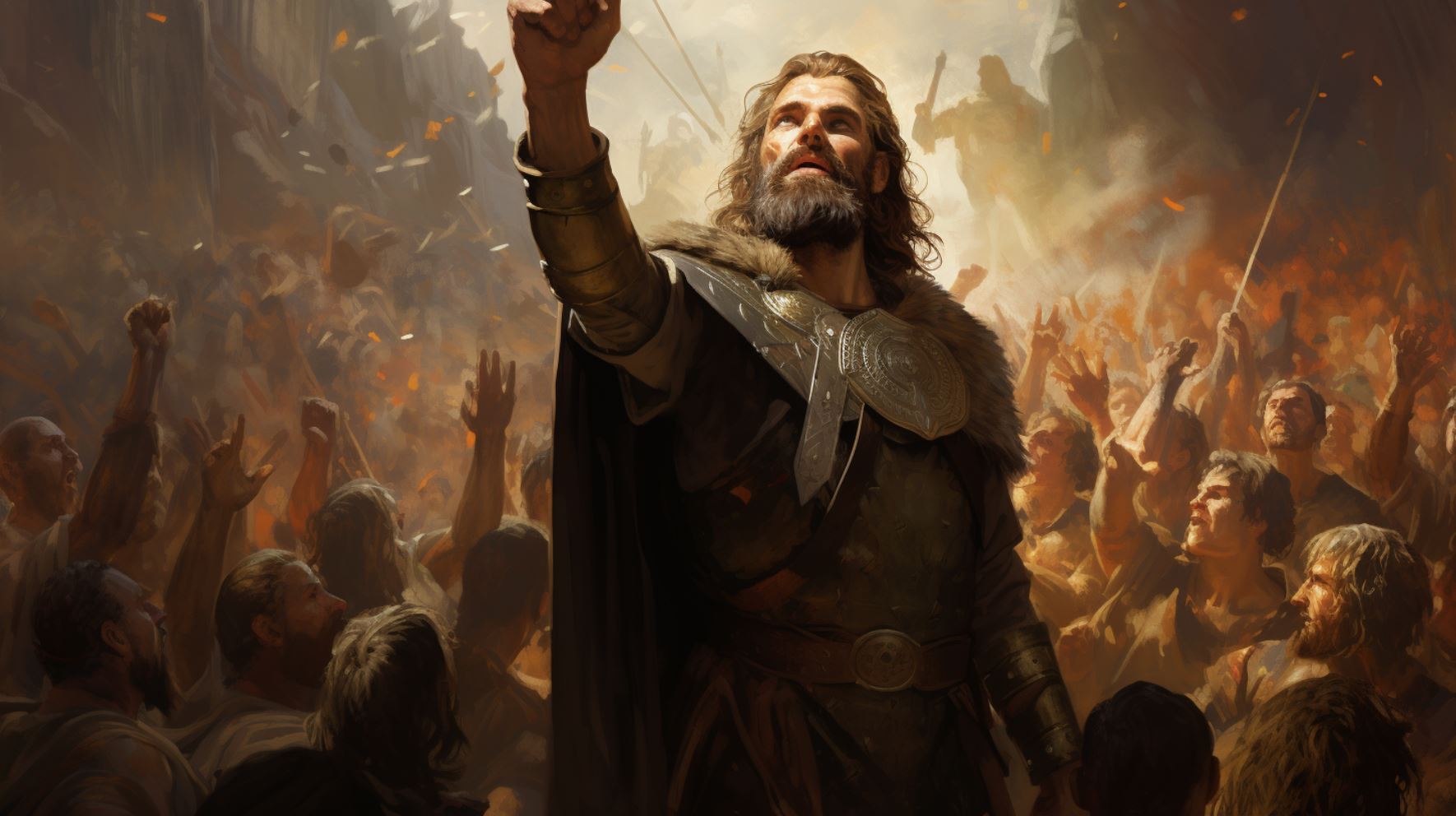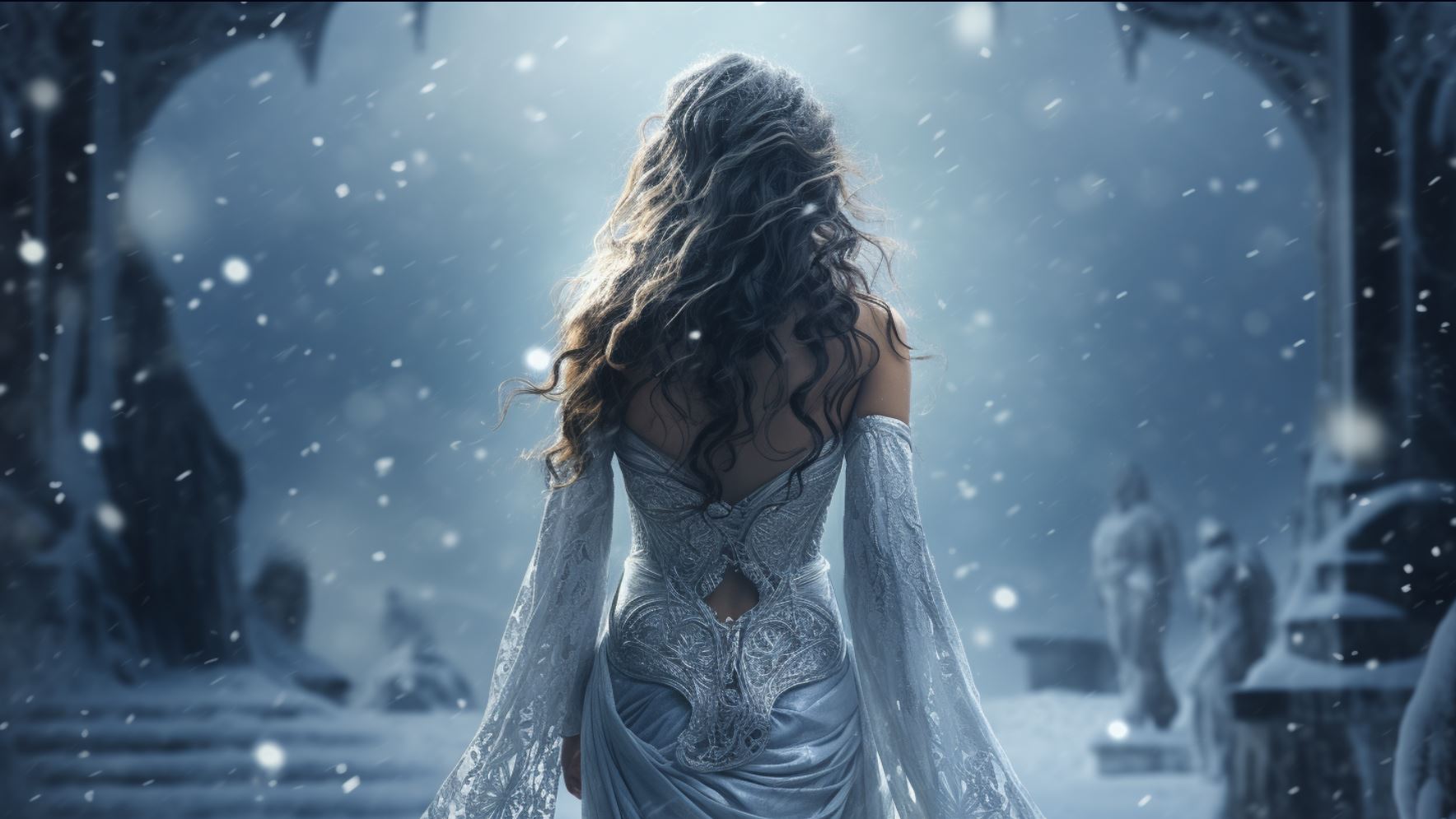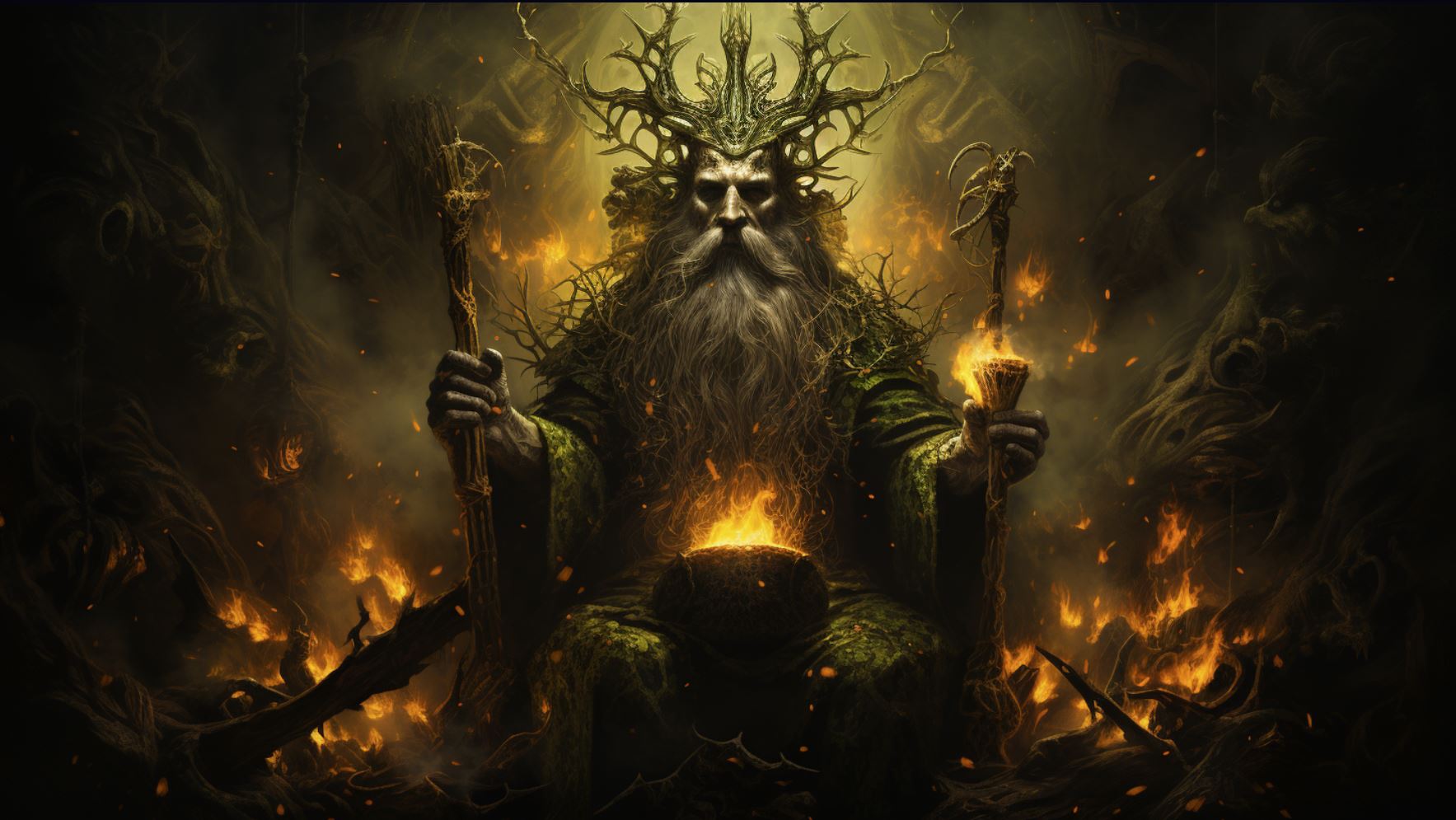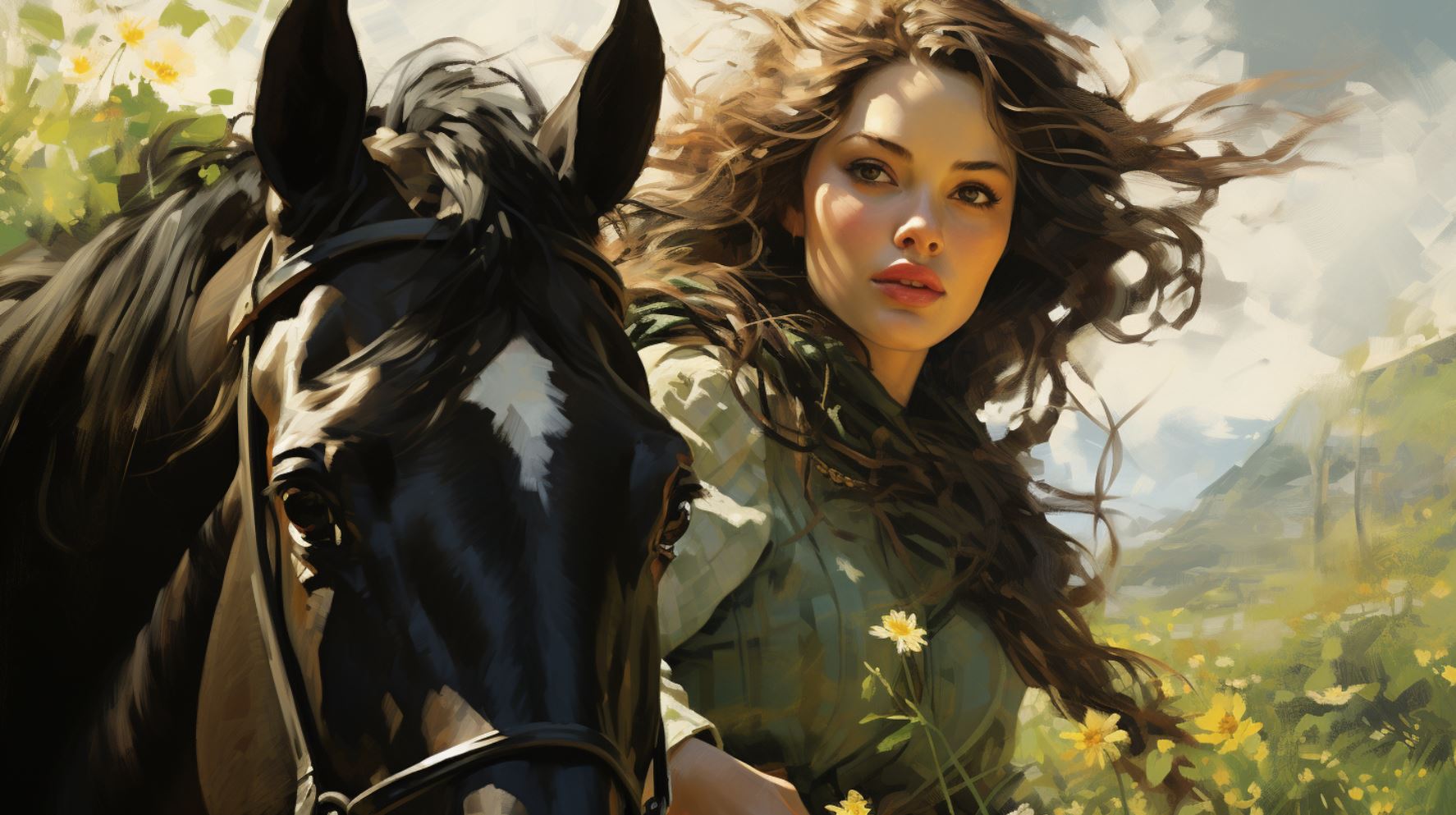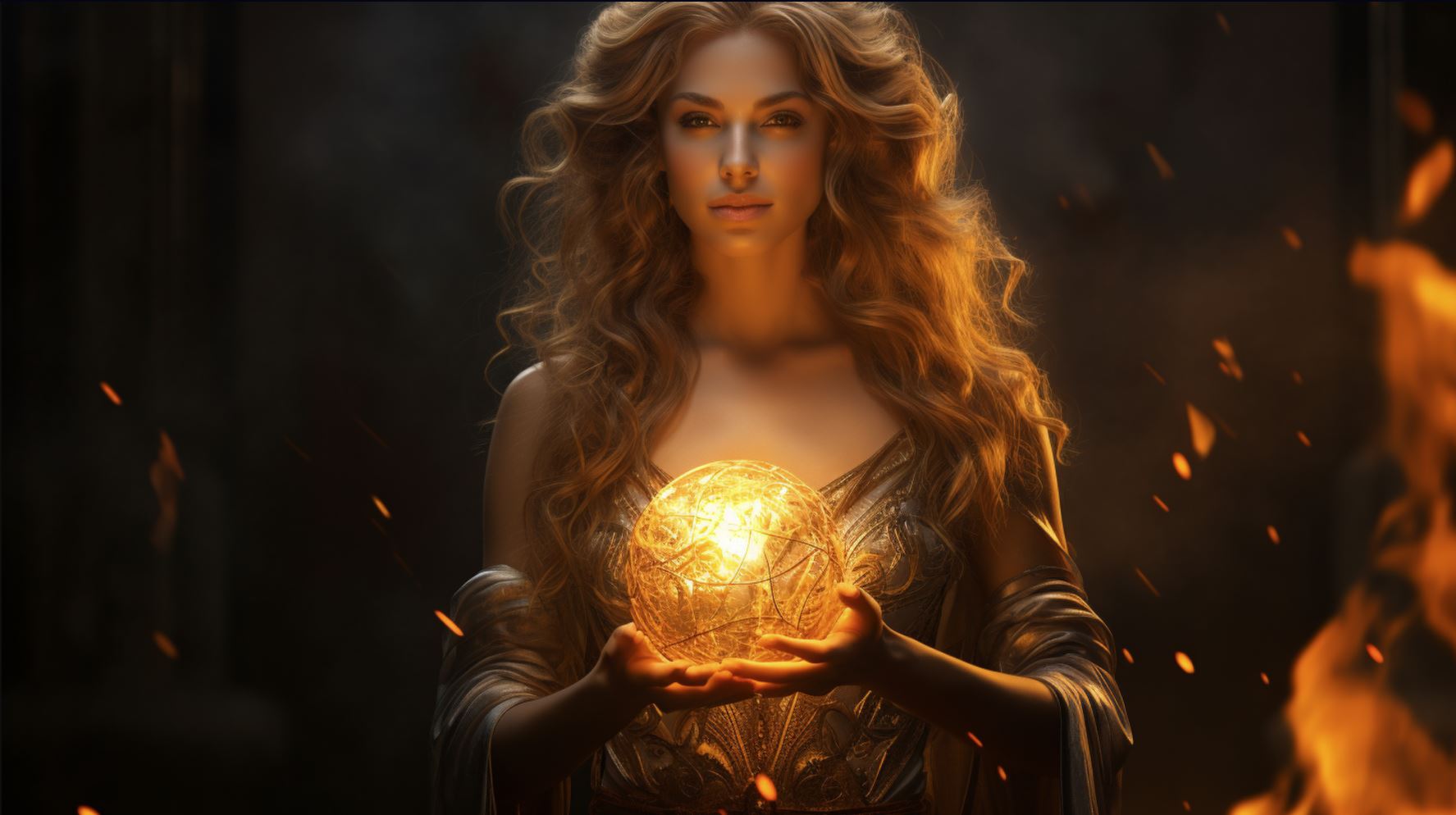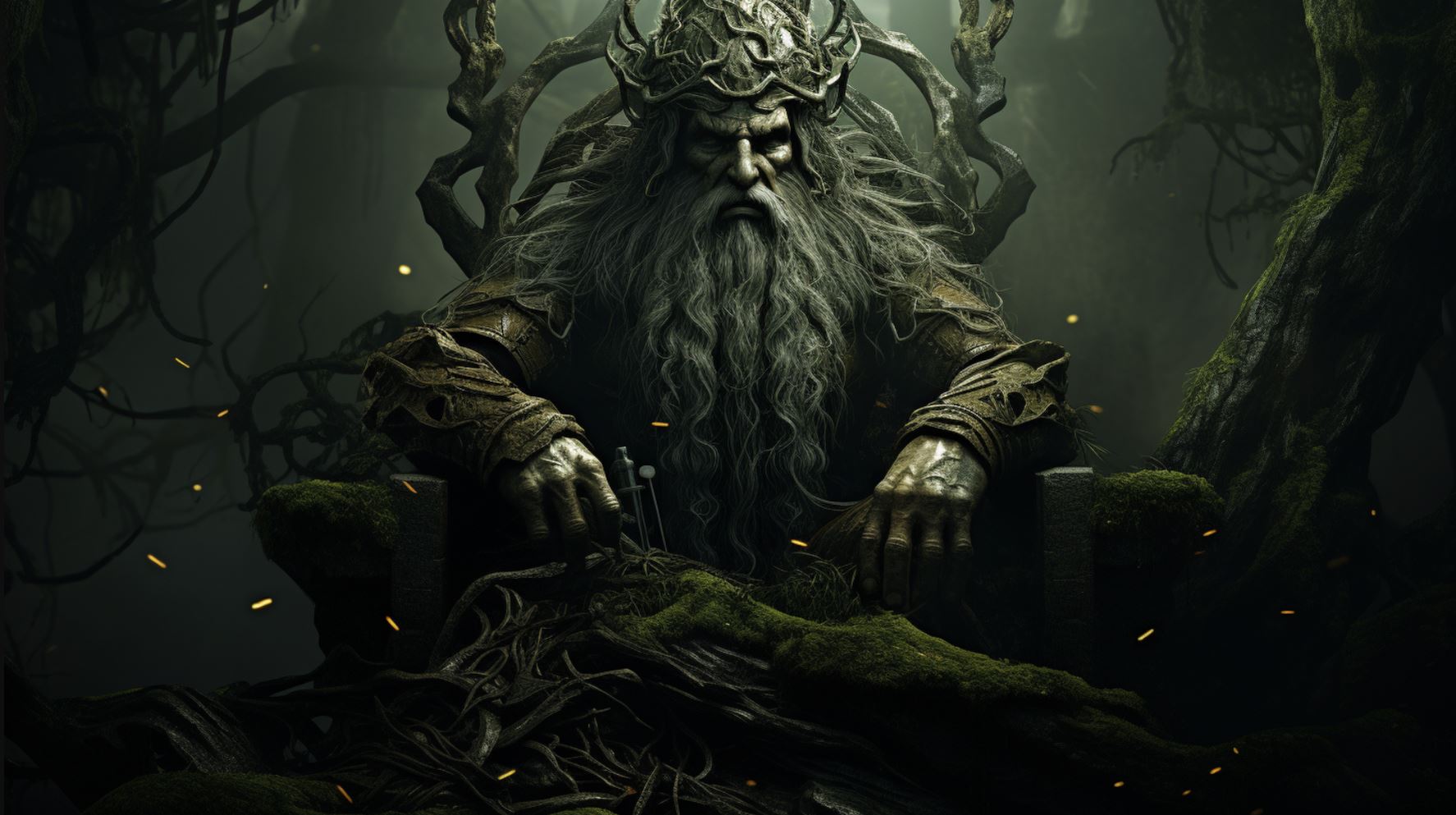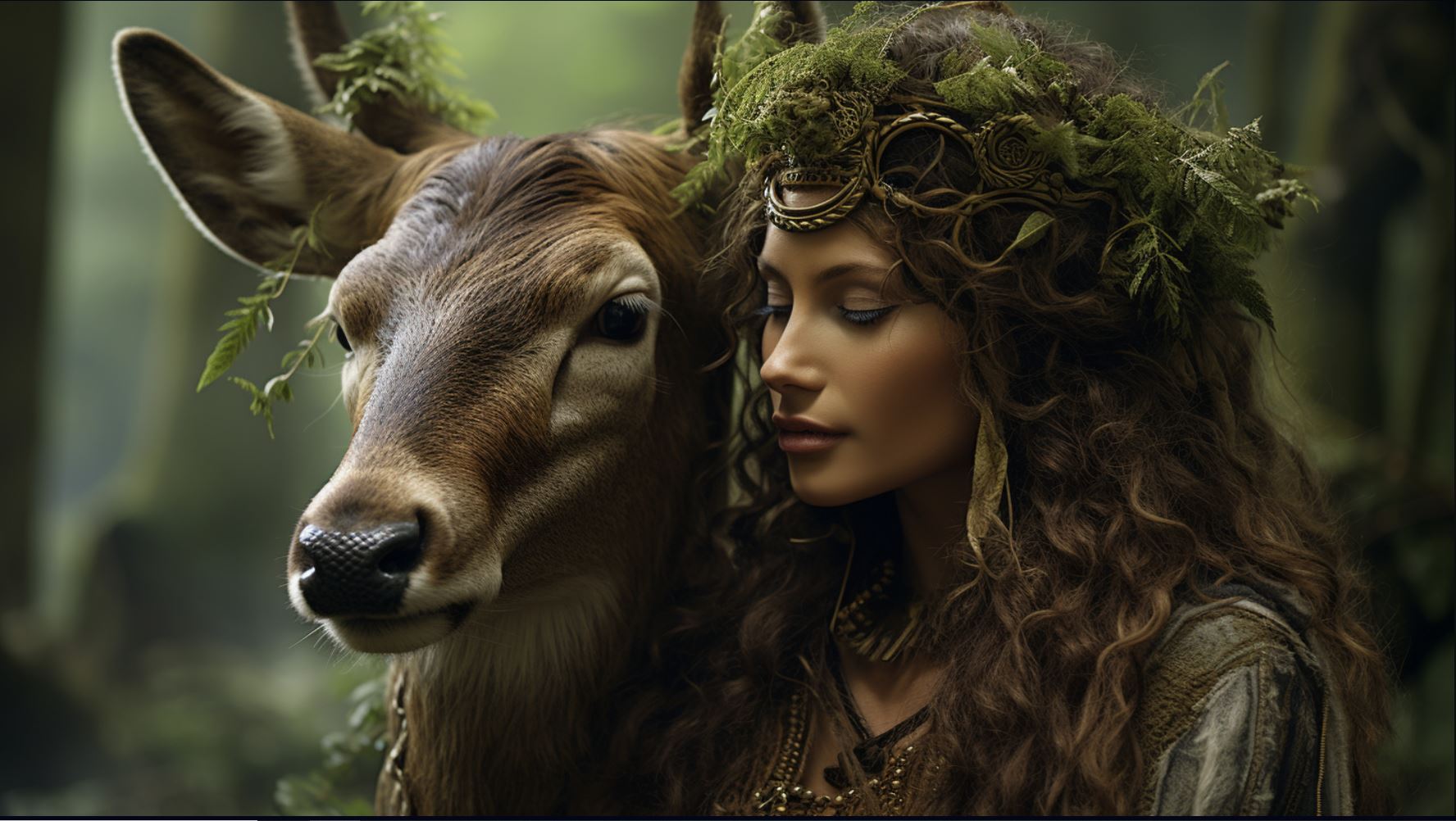Dian Cecht God: A Celtic Healing Deity and His Mythology
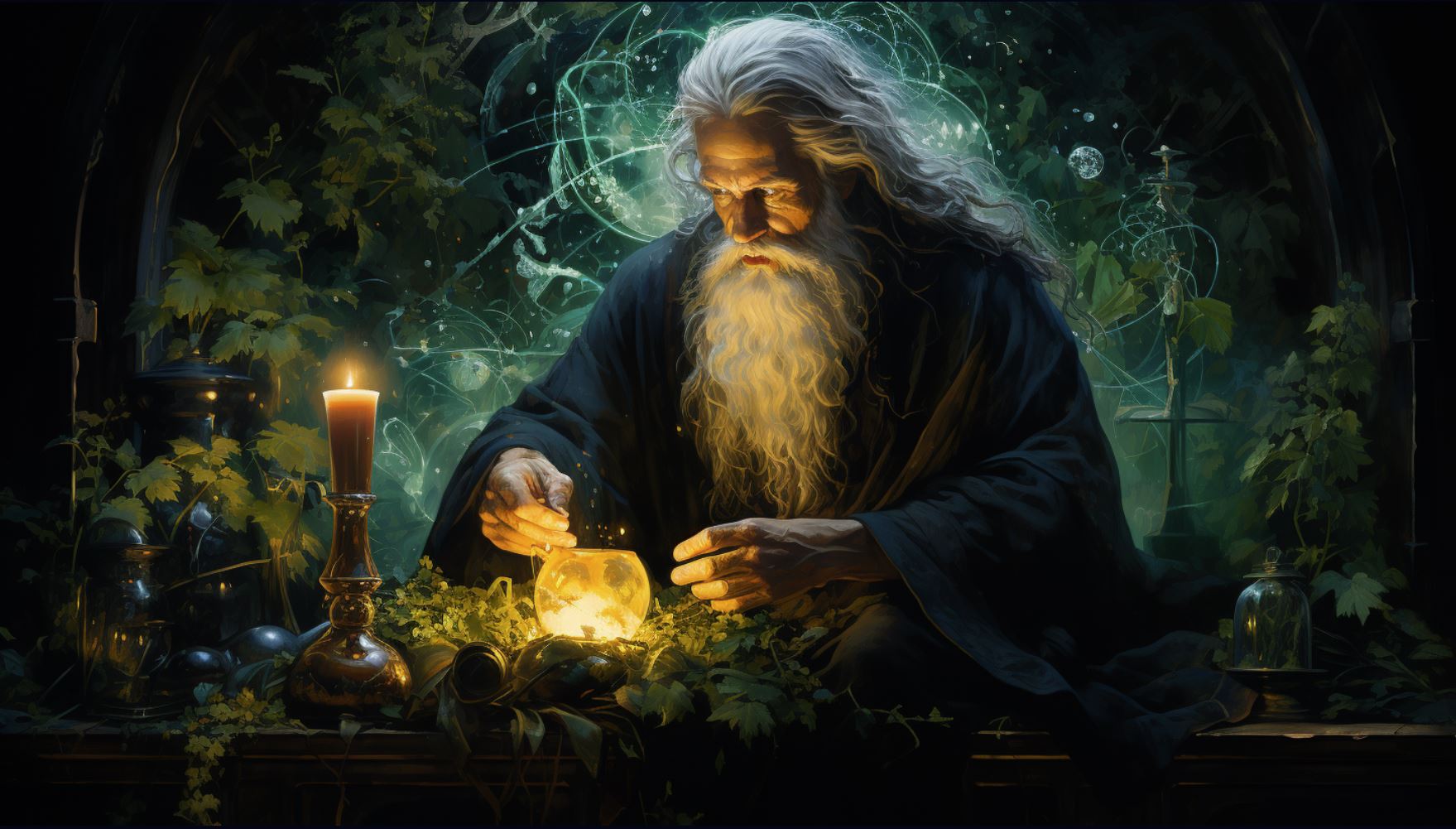
Dian Cecht, a Celtic healing deity, holds a prominent role in Irish mythology. Known as the healer of the Tuatha Dé Danann gods, Dian Cecht possessed exceptional curative abilities.
This article explores the origins of Dian Cecht, his role within Irish mythology, his complicated family relationships, and the dark aspects of his character. Additionally, it delves into Dian Cecht’s influence on healing practices and his invocation by mortals seeking aid.
Spells and invocations attributed to Dian Cecht are also examined.
The Mythology of Dian Cecht
The mythology surrounding Dian Cecht, the Celtic healing deity, is rich and fascinating. This section explores the origin of Dian Cecht and delves into his remarkable healing abilities.
The Origins of Dian Cecht
The origins of Dian Cecht trace back to the ancient Celtic mythology of Ireland.
According to the mythology, Dian Cecht is recognized as the offspring of Dagda, one of the prominent gods, and the father of several notable figures in Celtic lore. His lineage connects him to the powerful Tuatha Dé Danann, the deities of Irish mythology.
Dian Cecht’s Healing Abilities
Dian Cecht’s healing abilities were renowned throughout ancient Ireland. He possessed exceptional skills in the field of herbalism and the chanting of healing spells. The name “Dian Cecht” itself suggests notions of rapid power and vigor, reflecting his remarkable ability to rapidly create powerful healing remedies.
One of the most significant contributions of Dian Cecht to the realm of healing was the creation of the “Pool of Healing,” where he and his children would immerse the wounded and chant curative incantations.
This pool became a sanctuary of rejuvenation, curing countless warriors.
Furthermore, Dian Cecht erected the Tipra Slaine well, renowned for its healing properties. It served as a source of restoration, where injured warriors immersed themselves, emerging completely healed and revitalized.
As the most skilled physician in all of Ireland, Dian Cecht’s prowess extended beyond conventional healing methods. He demonstrated his remarkable talent by crafting an artificial silver arm for Nuada, the king of the Tuatha Dé Danann who lost his original arm in battle.
This act showcased Dian Cecht’s innovative approach to healing.
However, despite his accomplishments, Dian Cecht’s son, Miach, surpassed his father by creating a fully functional arm made of flesh and blood for Nuada. This accomplishment ignited feelings of jealousy within Dian Cecht, leading to tragic consequences that forever marred their relationship.
In conclusion, the mythology of Dian Cecht unveils the tales of his divine origins and extraordinary healing abilities. From his lineage as the son of Dagda to his creation of healing pools and prosthetic limbs, Dian Cecht’s impact on Celtic mythology is undeniable.
However, as we delve deeper into his story, we encounter the complex and turbulent nature of his relationships, as well as the darker aspects of his character.
Dian Cecht’s Role in Irish Mythology
Dian Cecht played a significant role in Irish mythology, particularly as the healer of the Tuatha Dé Danann, a group of gods.
His abilities in the realm of healing were highly regarded and revered.
Dian Cecht as the Healer of the Tuatha Dé Danann
Within the realm of the Tuatha Dé Danann, Dian Cecht held the prestigious position of being their primary healer. He possessed unparalleled skill and knowledge in the field of curative arts, making him a vital asset to the divine community.
Dian Cecht’s healing prowess was widely acknowledged, and he was known for his ability to swiftly create remedies with exceptional therapeutic benefits.
One of his most notable contributions was the creation of the “Healing Pool,” which he used in conjunction with his children.
In this pool, the wounded would be immersed, while the divine family chanted powerful healing incantations. As a result, those who emerged from the Pool would be completely cured of their injuries.
Dian Cecht’s Family and Relationships
The Children of Dian Cecht
Dian Cecht’s lineage was marked with talent and abilities. He was a father to several noteworthy individuals, including Cu, Cethen, Cian, Airmed, Miach, Étan, and Ochtriullach. Each of his children possessed unique qualities and played important roles in the realm of healing and medicine.
Dian Cecht’s Jealousy and Violence
While Dian Cecht himself was a skilled physician, his jealousy and violent tendencies tainted his relationship with his children. This toxic dynamic was particularly evident in his rivalry with his son Miach.
When Miach successfully created an arm made of flesh and blood for the wounded deity Nuada, surpassing Dian Cecht’s original creation of a silver arm, the elder deity grew envious.
His jealousy ultimately led to the murder of Miach, furthering the strained relationship within the familial realm.
Although Dian Cecht’s skill and achievements as a healer were significant, his personal flaws and destructive actions cast a shadow over his legacy within Irish mythology.
Conclusion
In Irish mythology, Dian Cecht’s role as the primary healer of the Tuatha Dé Danann showcased his exceptional curative abilities. However, his tumultuous relationships with his children, characterized by jealousy and violence, marred his reputation.
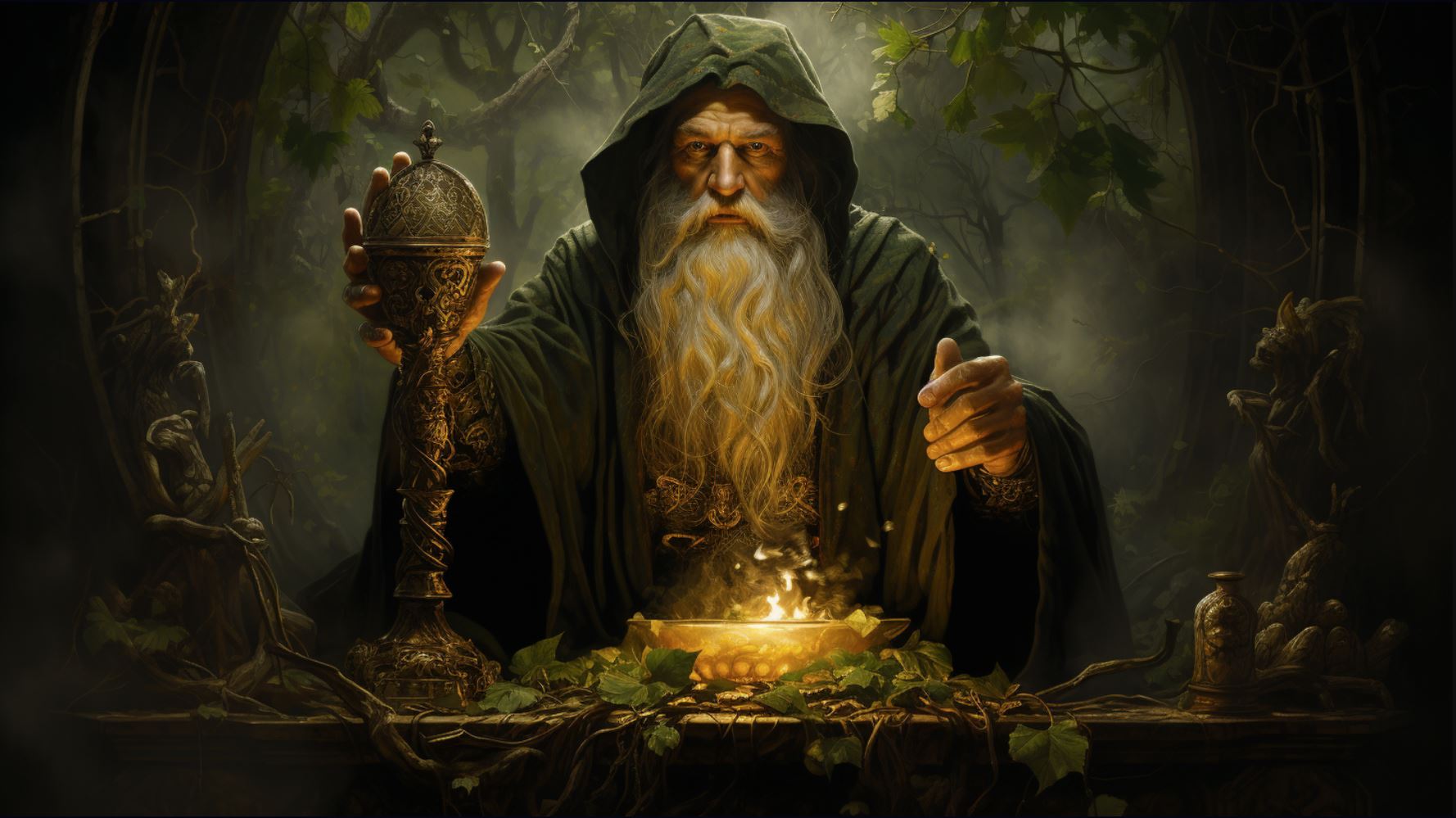
Despite his contributions to the world of healing, Dian Cecht’s dark side and destructive actions cannot be overlooked.
The Dark Side of Dian Cecht
While Dian Cecht was renowned for his healing abilities, his character also had a darker side. This section delves into the disturbing prophecy and actions associated with the Celtic deity.
Dian Cecht’s Disturbing Prophecy and Actions
One of the unsettling aspects of Dian Cecht’s mythology is his prophetic abilities, which foretold dire events.
He once prophesied that Morrigan’s baby was malformed and advised terminating the pregnancy. Upon dissecting the baby, he discovered three monstrous serpents growing in its heart, capable of causing devastation if they were to mature.
Dian Cecht disposed of the serpents by burning them and casting their ashes into a river, resulting in the eradication of all life within.
Dian Cecht’s Destruction of Airmed’s Work
The jealousy and anger within Dian Cecht led him to commit a destructive act against his own daughter, Airmed. After the untimely death of Dian Cecht’s son, Miach, Airmed wept for her brother’s passing, causing 365 medicinal herbs to grow wherever her tears fell.
However, in an act of spite and envy, Dian Cecht destroyed Airmed’s painstaking work, scattering the herbs so that humanity would not benefit from their extensive healing properties.
These disturbing prophecies and destructive actions reveal a darker side to Dian Cecht’s character, overshadowing his healing prowess.
Such aspects of his mythology offer a complex and multifaceted understanding of this Celtic deity.
Dian Cecht in Healing Practices
Dian Cecht, the Celtic healing deity, held a significant influence on mortal healing practices. His renowned curative abilities inspired mortals to seek his assistance in times of ailments and illnesses. Let’s explore how Dian Cecht’s legacy impacted the realm of healing and the spells and invocations associated with his name.
Dian Cecht’s Influence on Mortal Healing
As the best physician in all of Ireland, Dian Cecht’s expertise extended beyond the divine realm. Mortals revered him and sought his guidance when faced with health challenges. It was believed that invoking his name and employing his healing methods could lead to miraculous recoveries.
Individuals would recite ancient incantations and perform rituals, hoping to attain Dian Cecht’s intervention. Whether it was an herbal remedy, a chant, or an act of immersing oneself in a healing pool, mortals sought to harness the power of Dian Cecht’s healing prowess.
Spells and Invocations for Healing
Throughout the ages, spells and invocations were preserved, containing pleas for Dian Cecht’s assistance in times of illness. These ancient texts, passed down through generations, sought to harness his power and channel it towards the healing of the body and mind.
The spells often involved reciting sacred words, using specific herbs and elemental offerings, and conducting rituals with utmost precision. By invoking Dian Cecht’s name and following the prescribed procedures, it was believed that one could attract his attention and receive his aid in recovering from ailments.
- Incantation for Ailment Relief
- Ritual of Cleansing and Restoration
- Herbal Elixir for Vitality
- Prayer for Healing Dreams
These spells and invocations represented the belief in Dian Cecht’s divine healing abilities and were passed down as valuable treasures in the realm of ancient healing practices.
Overall, Dian Cecht’s influence in mortal healing practices was substantial. His reputation as a skilled healer and the tales of his miracles spread far and wide, capturing the imaginations of people seeking relief from physical and spiritual afflictions.
.











